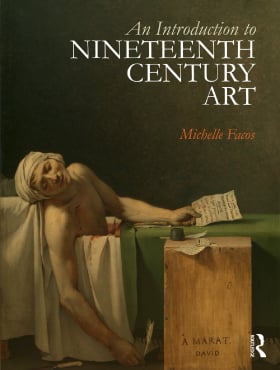Barrett, Brian Dudley. Artists on the Edge. The Rise of Coastal Artists' Colonies, 1880-1920. Amsterdam: Amsterdam University Press, 2011
Chapter 14
INDIVIDUALISM AND COLLECTIVISM
The destabilization of traditional identities -- individual and collective -- led to a search for new ways of defining one's place in the world. Artists operating outside the academic system formed bonds with like-minded colleagues based on shared aesthetic, economic, and social ideas. Those appalled by the negative aspects of urban life often took refuge in the countryside and formed artists' colonies. Artists who remained in cities formed organizations whose purposes could be as broad as exhibiting the work of member artists, or as narrow as the promotion of a particular ideology. The need to define one's place in the world applied to nations as well, with artists playing a key role in formulating the characteristics of national identity.
Artists and Artworks:
Readings:
Berman, Patricia G. In Another Light: Danish Painting in the Nineteenth Century. New York: Vendome Press, 2007
Budapest, 1869-1914: modernité hongroise et peinture européenne. Exhibition catalogue. Paris: A Biro, 1995
Chassé, Charles. The Nabis and Their Period, Michael Bullock, trans. London: Lund Humphries, 1969
Clarke, Jay A. “Neo-Idealism, Expressionism, and the Writing of Art History,” Art Institute of Chicago Museum Studies, vol. 28, no. 1 (2002): 24-37
Dreams of a Summer Night. Exhibition catalogue. London: Arts Council of Great Britain, 1986
Hetmann, Frederik. Worpswede: die Geschichte einer deutschen Künstlerkolonie. Munich: C. Bertelsmann, 1987 (in German)
Hobsbawm, Eric. The Age of Empire: 1875-1914. New York: Vintage: 1989
Lübbbren, Nina. Rural Artists’ Colonies in Europe, 1870-1910. New Brunswick: Rutgers University Press, 2001
Mauner, George L. The Nabis: Their History and Their Art, 1888-1896. New York: Garland, 1967
Smith, John Boulton. The Golden Age of Finnish Art: Art Nouveau and the National Spirit. Helsinki: Otava, 1985
Worpswede: eine deutsche Künsterkolonie um 1900. Ottersberg-Fischerhude: Galerie Verlag Fischerhude, 1986 (in German)







 Buy the Book
Buy the Book